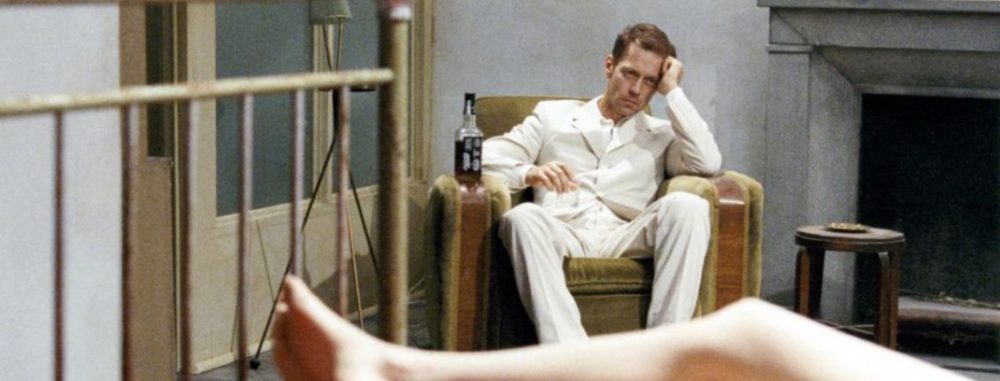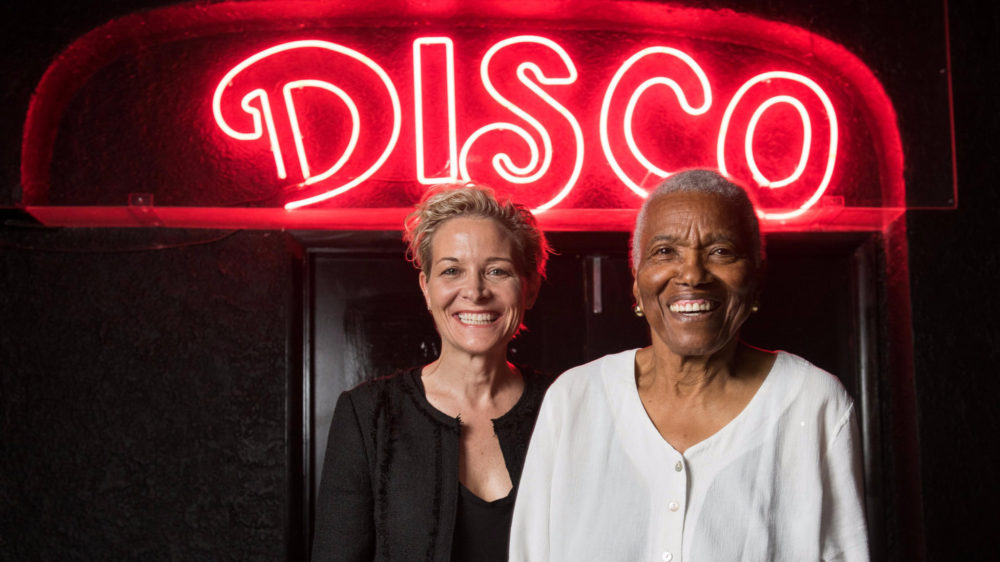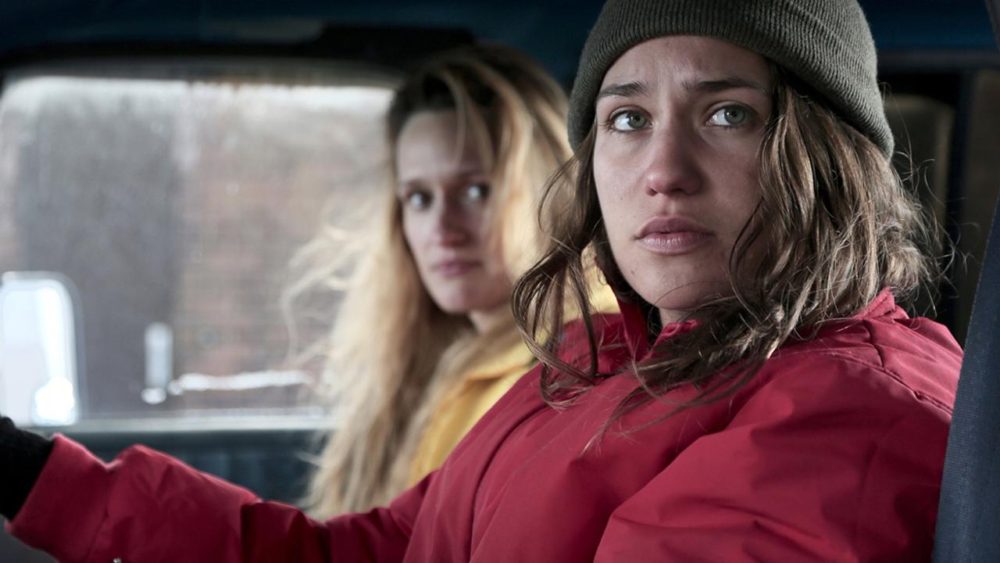
Anatomy of Hell (Catherine Breillat, 2004)
A gay man walks into a bathroom and stops a woman from killing herself. She then invites him over and pays him to watch her in her bedroom for four nights. This is how Catherine Breillat’s Anatomy of Hell launches into what is, without a doubt, the most masterful work of art that explores how misogyny transcends gender and sexuality and becomes ingrained in all of us. More pointedly, it’s about how when confronted with that reality, we find ourselves leaning into our misogynistic habits more than ever in some paltry form of defense, that is ever to likely exist.
It’s a film that relies on being beautifully acted and smartly scripted to the point where it becomes an assault of theoretical musings in the form of casual, though sometimes uncomfortably pointed, dialogue that makes the audience question themselves as much as the queer character at its core does. In adapting her own novel, Breillat presents violent and sexual imagery in a seemingly nonchalant manner, making each depiction of it all the more impacting.
It’s as grotesque as it is entrancing and erotic, with scenes like a man pulling his erect penis out of a woman’s vagina, dripping with menstrual blood, being paired with discussions of male fragility and discussions of life and existence and how men and women can give and take that. But for all the content that places it squarely in the New French Extremity collection, this is ultimately a rather straight-forward film in which two individuals discuss man’s inability to escape the hatred he feels for a woman and woman’s inability to escape the shame she feels in her own body due to the men who surround her.
All this makes the fact that men on Letterboxd are badmouthing Catherine Breillat and this film after acknowledging that the film is about misogyny so much funnier and sadder.
[JB: Anatomy of Hell is available for purchase on DVD]

Jewel’s Catch One (C. Fitz, 2016)
“At the time that we opened, there was still an abundance of racism. The Catch offered a place where any and everybody could come,” Thais-Williams says of what she created. Jewel’s Catch One shows us not only a slice of history, but the tale of a fantastic gay black entrepreneur who made an icon of herself, not by trying to be an icon, but by simply providing people – black, white, gay, bisexual, living with HIV/AIDS – with a safe space that was as exciting as it was accepting.
C. Fitz isn’t a flashy filmmaker, presenting the history of Jewel’s Catch One simply and effectively with a ton of photographs from the past, talking head interviews that span years and years (including folks like Thea Austin, Sandra Bernhard, and Sharon Stone), and sometimes repetitive but always appealing scenes within the club itself. Accompanying all this is, of course, a ton of disco tunes, some better known than others and some by artists who performed there and were interviewed for the film themselves (Evelyn “Champagne” King notably).
And for those who don’t know it, Jewel’s Catch One really dishes out the history and sets it up as the place to be. It’s not simply what it represented, it’s that so many of the people who walked into its doors have become history themselves. Fitz doesn’t solely focus on the woman and the club, but on individuals like Thelma Houston, winner of a Grammy in ‘78 for “Don’t Leave Me This Way”, which she first heard live in a club all alone at Jewel’s place with the master recording she’d be given. Disco history, black history, and queer history all go hand-in-hand and Jewel herself is the perfect conduit to explore all these things, albeit in a limited fashion.
There’s often an assumption of clubs being limited to vacuous dancing, but Fitz’s documentary shows that Jewel, her spouse Rue Thais-Williams (who founded Rue’s House, a shelter for women with AIDS and their children), and the other individuals that surrounded them involved in activism. In a great way, Jewel’s Catch One becomes just as much of a testament to Thais-Williams’ work in creating awareness and acceptance about a multitude of lifestyles as it is to the majesty of the club itself.
[JB: Jewel’s Catch One played at the MiFo Gay and Lesbian Film Festival; its theatrical release date is TBD.]

AWOL (Deb Shoval, 2016)
AWOL dives head first into a certain realm of American culture that’s overwhelmingly white and conservative; the kind of stuff you hear about in country songs with pick-up trucks, girls in daisy dukes, ever flowing beer, and t-shirts praising that second amendment like hell. In setting a queer story here, there’s bound to be a lot of the frustrating staples of gay romance blooming in a place where it “shouldn’t.” Deb Shoval doesn’t necessarily avoid them, but where many rely on these tropes to tell a half-assed story, the filmmaker offers a compelling case for why someone would want to sidestep her army duties for love.
That doesn’t make it limited to a love story though, as AWOL offers a fair criticism on the unfairness of America’s wealth, army, and school system and how young adults are forced to rely on the limited benefits of going to war. As the lead Joey, in love with the married Rayna (Breeda Wool) and contemplating going away to war, Lola Kirke doesn’t fall into any particular lesbian stereotype and the film interestingly explores how frustrating it can be to dive into the queer dating world while being relatively experienced. She swishes comfortably between femininity and masculinity, neither one of them exaggerated in the slightest, while Wool – in a role comparable to that of her UnREAL character Faith only in that they’re both country girls who aren’t straight – lends Rayna a certain maturity that mothers who love sex and drinking often aren’t allowed.
The back-and-forth of “will they, won’t they” does occasionally get a little tiresome, but not enough to make the film drag. Kirke and Wool sell romance beautifully and the only scenes that land with a thud typically involve the men that surround the girls, notably Rayna’s husband Roy, painted broadly for the purpose of being an antagonist of sorts. Regardless, there’s a real beauty to how every aspect of this movie portrays the forbidden romance between these women. It’s not simply about the actresses in their nuanced performances, but about Deb Shoval and co-writer Karolina Waclawiak’s ability to never make their likely-to-be-tragic story a maudlin one complemented by mostly realistic dialogue and first-feature DP Gal Deren’s knack for presenting scenes of sex and longing with as much beauty and tenderness as people going about their day-to-day lives.
[JB: AWOL played at the MiFo Gay and Lesbian Film Festival; its theatrical release date is TBD]



 Derek
Derek
 Isabelle
Isabelle